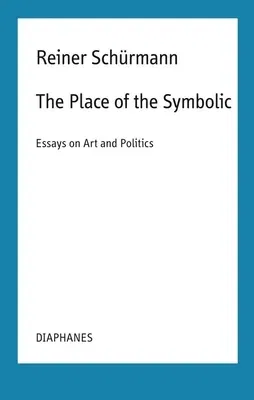This book weaves together Reiner Schürmann's work on art and politics,
drawing on a range of the most important thinkers and poets of the
twentieth century and beyond.
The Place of the Symbolic gathers Reiner Schürmann's essays on the
nexus of art and politics. In keeping with his translation of the
destruction of metaphysics into an an-archic philosophy of practice,
Schürmann develops a radical theory of the place of symbols, irreducible
either to idealist theories of symbols or structuralist accounts of the
symbolic. Symbols, Schürmann argues, may provide a bridge between
ontological difference and politics. They resist being grasped
metaphysically, in terms of representation. Instead, their understanding
requires a specific way of existence: attending to the
coming-to-presence of phenomena. As such, the understanding of symbols
discloses a form of praxis that abandons ultimate grounds and opens onto
the manifold.
Alongside Schürmann's theory of symbols, the collection includes essays
on the relation between metaphysics, tragedy, and technology; on the
"there is" in poetry; as well as on judgment. Throughout these
characteristically lucid interventions, Schürmann's most urgent concern
remains a consideration of singular and finite practices that enact a
release from universal principles. Art and politics appear here as the
unworking of ultimate grounds; that is, as practices attuned to a truly
groundless form of life.

